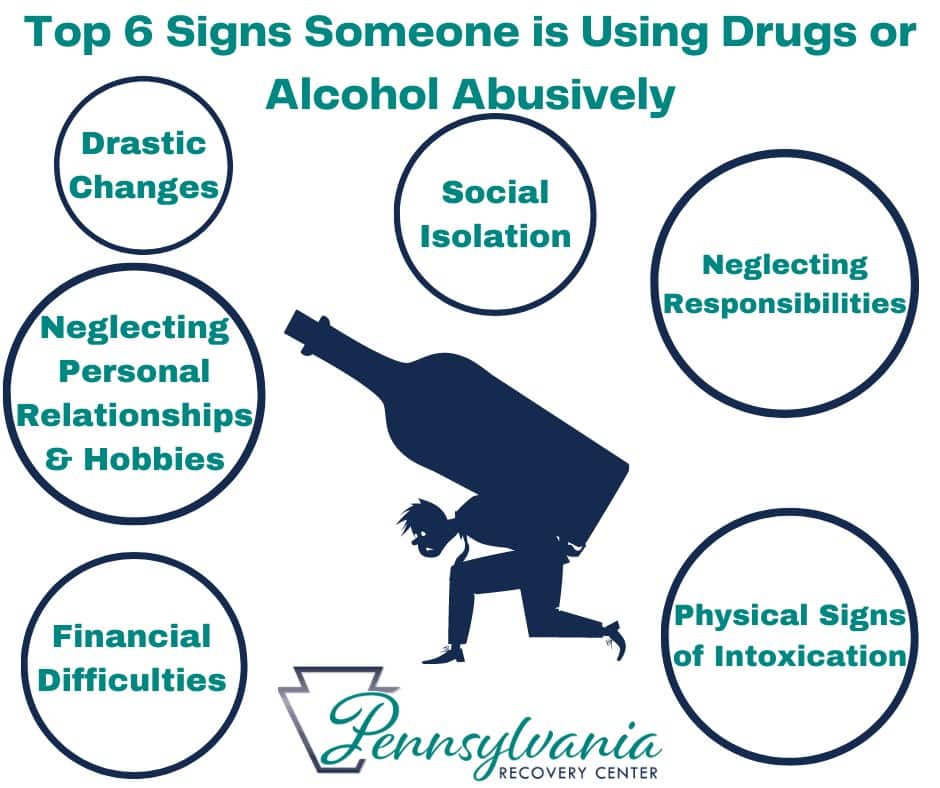Drug Abuse Rehab: Pathways to Healing and Recuperation
Drug abuse rehab plays a crucial role in helping people overcome the struggles of addiction and rebuild their lives. Whether a person is fighting alcohol dependence, medicine dependency, or prescription misuse, rehab centers offer a structured environment for recovery-- literally, psychologically, and mentally. In today's world, where the challenges of addiction prevail, understanding what rehabilitation requires, its value, and the kinds of services available can make a significant distinction in one's trip to healing.
Understanding Substance Abuse and the Demand for Rehab
Drug abuse impacts countless people worldwide, crossing age, gender, and socioeconomic lines. It is an intricate condition characterized by the uncontrollable use of damaging materials despite unfavorable consequences. Alcohol and drugs can change brain chemistry, bring about physical reliance and mental illness. With time, addiction takes control of an individual's habits, judgment, and ability to work normally in culture. Many people that fall under this cycle typically find it hard to stop without specialist help.
Rehab becomes necessary because addiction is not merely a lack of determination-- it's a disease that impacts the body and mind. Rehab centers supply evidence-based therapies that target the origin of Substance Abuse instead than simply the symptoms. These programs provide structured settings that urge healing through medical cleansing, therapy, and skill-building. The best goal is to help individuals establish dealing systems and lead drug-free, efficient lives.
When a person can no longer handle daily responsibilities or preserve partnerships due to Substance use, the need for rehab frequently occurs. Family members disputes, work performance problems, or health and wellness complications are typically the first indications that expert help is required. By seeking therapy early, people can stop lasting damages to their physical health and wellness and psychological health.
The Relevance of Substance Abuse Rehab
Rehab is not simply regarding giving up medications or alcohol-- it's about change. The value of rehab depends on its alternative method to healing, concentrating on the individual as an entire instead than just the addiction. Several individuals enter rehab at their floor, typically feeling helpless and separated. The structured atmosphere of a rehabilitation facility provides them with the devices and support to discover purpose and self-respect.

Among the crucial benefits of rehabilitation is the clinical guidance given throughout detoxification. Withdrawal signs can be extreme and, in many cases, life-threatening. Specialists monitor the procedure, making certain safety and comfort while decreasing the dangers of regression. Beyond physical healing, rehab additionally addresses the psychological facets of addiction via treatment and counseling. Cognitive-behavioral treatment (CBT), motivational speaking with, and team sessions help people comprehend their triggers and learn healthy and balanced coping devices.
Additionally, rehabilitation provides long-lasting benefits that prolong past the person. Households gain back security, connections are mended, and neighborhoods benefit when individuals reintegrate as healthy, contributing participants. Substance Abuse not just harms the individual involved but additionally influences liked ones. Rehabilitation assists damage this cycle, fostering much healthier environments for everybody entailed. Basically, rehabilitation is a financial investment in life, health, and the future.
Solutions Offered basically Abuse Rehab Centers
Rehab facilities supply a variety of solutions tailored to the distinct requirements of each person. The objective is to create an individualized therapy strategy that addresses physical, emotional, and social elements of healing. The initial stage of many programs is medical cleansing, where the body is cleaned of unsafe substances under expert supervision. Detox assists handle withdrawal signs and symptoms safely, paving the way for additional restorative interventions.
Complying with detoxification, individuals commonly relocate right into treatment and therapy sessions, which create the core of dependency therapy. Specific treatment enables clients to work one-on-one with certified specialists to reveal underlying concerns, such as injury or psychological wellness problems that may have contributed to addiction. Group treatment, on the various other hand, cultivates peer assistance and responsibility. Sharing experiences with others who have dealt with comparable battles assists individuals feel understood and encouraged.

Kinds of Rehabilitation Programs Available
Not all rehab programs are the exact same. Depending on the extent of addiction, individual preferences, and life circumstances, people can pick from numerous sorts of rehabilitation programs. One of the most common are inpatient, outpatient, and household treatment programs. Each deals unique benefits created to satisfy different degrees of care.
Inpatient rehabilitation programs require people to remain at the therapy description facility full time, typically for 30, 60, or 90 days. This setting offers day-and-night medical and emotional assistance, removing disturbances and temptations from day-to-day life. Inpatient care is suitable for those with severe addictions or co-occurring psychological health conditions, as it ensures detailed guidance and intensive therapy.
Outpatient rehabilitation programs supply more versatility for people that can not commit to full time therapy. Individuals attend therapy sessions numerous times a week while remaining to live at home or preserve job responsibilities. Outpatient care is finest matched for those with light to moderate addictions or for those transitioning from inpatient treatment. It enables people to use coping strategies in real-world settings while still getting specialist assistance.
There are likewise specialized rehab programs that deal with details teams, such as females, teens, or experts. Some facilities include faith-based strategies, while others concentrate on all natural recovery that incorporates physical health and mindfulness techniques (rehab near Chester NJ). Furthermore, high-end rehab centers provide premium services and exclusive holiday accommodations for those looking for convenience together with care. Despite kind, the key purpose continues to be the very same-- to top article assist people toward continual recuperation
Common Reasons Individuals Required Rehab
Dependency does not happen overnight, neither does it have a single reason. People seek rehabilitation for different reasons, frequently tied to both personal and ecological aspects. One of one of the most usual reasons is persistent stress and anxiety and trauma. People that have experienced physical or psychological injury commonly turn to substances as a coping system. In time, this actions ends up being habitual, bring about reliance. Rehabilitation assists these individuals procedure unresolved discomfort through treatment and emotional support.
One more significant factor is psychological health and wellness disorders, such as anxiety, anxiousness, or bipolar illness. When mental disorder goes unattended, people might self-medicate making use of medications or alcohol to leave their emotional distress. This dual-diagnosis circumstance calls for specialized therapy that addresses both dependency and psychological wellness concurrently. Rehabilitation facilities outfitted with psychological treatment can help support these problems through medicine monitoring and therapy.
Social pressure and ecological influence likewise play a significant role in Substance Abuse. Peer pressure, family members disorder, or exposure to addicting compounds from a young age can make people more at risk to addiction. For some, dependency starts innocently-- with prescription drug following an injury or surgical treatment-- yet rises into misuse. Rehab provides a organized and secure course to damage devoid of these cycles. It empowers individuals to determine triggers, develop much healthier routines, and re-establish control over their lives.
The Trip of Recuperation and Life After Rehabilitation
Recuperation does not finish the day an individual finishes a rehabilitation program-- it's a lifelong process of growth and self-discovery. Life after rehab comes with difficulties, but also chances for revival. Several people define it as a "2nd opportunity" to cope with appreciation, purpose, and quality. The lessons learned throughout therapy, such as self-discipline, emotional recognition, and strength, end up being the foundation for a meeting life cost-free from dependency.
After leaving rehab, people are motivated to join aftercare programs and assistance networks. Routine attendance in team conferences or therapy sessions aids preserve accountability and protects against relapse. Sober living settings can like this likewise provide transitional real estate for those who require extra structure prior to fully rehabilitating into culture - rehab near Chester NJ. Maintaining a solid support system of family members, pals, and peers is essential for lasting success
Additionally, recuperation opens the door to individual growth. Many people pursue education and learning, new professions, or volunteer job as part of their recovery trip. They learn to manage stress with healthy and balanced outlets such as workout, reflection, or innovative leisure activities. While relapses can happen, they are seen not as failings but as chances to reinforce one's commitment to soberness. Ultimately, drug abuse rehabilitation works as the foundation for a life of equilibrium, objective, and freedom.

Final Thought: Picking Hope and Healing
Chemical abuse rehab stands for greater than a treatment-- it signifies hope. It is a bridge between misery and renewal, using individuals the chance to redeem their lives from dependency's grip. Via professional care, structured therapy, and caring assistance, people can uncover their toughness and purpose. Comprehending the solutions supplied, the kinds of rehab readily available, the value of recovery, and the reasons people require it gives clarity for those seeking assistance or sustaining loved ones on their journey.
Selecting rehabilitation is not an indicator of weakness but of guts-- the guts to challenge discomfort, rebuild identity, and embrace a brighter future. Healing is feasible, and with the appropriate guidance, every step toward healing brings a person closer to lasting flexibility and peace.
Substance Abuse rehab plays a crucial duty in aiding people overcome the struggles of addiction and reconstruct their lives. The requirement for rehabilitation usually emerges when a person can no much longer take care of day-to-day duties or keep partnerships due to Substance use. Inpatient rehabilitation programs call for people to remain at the therapy facility full-time, usually for 30, 60, or 90 days. Outpatient rehab programs provide more flexibility for individuals who can not devote to permanent therapy. After leaving rehab, people are urged to get involved in aftercare programs and assistance networks.